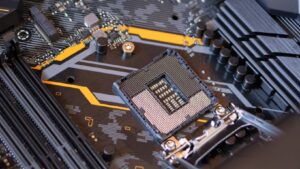Deciding on a tech career can feel like navigating a labyrinth with countless turns and possibilities. Each path leads to distinct roles filled with unique challenges and rewards, making the choice overwhelming. Whether you’re a budding programmer, an aspiring data scientist, or someone interested in cybersecurity, understanding where your passion and skills align is crucial.
Which Tech Career Is Right For Me
Choosing a tech career involves understanding the various sectors within the technology industry. Each sector offers unique opportunities and challenges, catering to different skill sets and interests.
Software Development

Software development stands out as a fundamental tech sector. It involves designing, coding, and testing software applications. People who enjoy problem-solving and creativity often thrive in this field.
Information Technology (IT)
IT focuses on the use of technology for storing, retrieving, and sending information. This sector suits those who are skilled in hardware and software maintenance and support.
Cybersecurity
Given the increasing cyber threats, cybersecurity is crucial. It protects systems, networks, and programs from digital attacks. Individuals who are detail-oriented and proactive in risk management find this sector rewarding.
Data Science and Analytics
Data science and analytics involve processing and analyzing vast amounts of data. Those who excel in statistics and are skilled at extracting insights from data will find this sector appealing.
Assessing Your Skills and Interests
Identifying one’s core competencies and passions is crucial in choosing the right tech career. One should begin by evaluating their skills in areas such as programming languages, software development, or IT systems management. Interest in continuous learning and problem-solving are essential traits for success in tech roles. For instance, those with a knack for logic and analytics might excel in data science, while individuals who enjoy safeguarding information could thrive in cybersecurity.
Additionally, personality traits play a significant role. For example, a penchant for meticulous work benefits software developers, and strong interpersonal skills are vital in IT support roles. Matching these traits with the appropriate tech sector ensures not only career satisfaction but also long-term success in the fast-evolving tech industry.
Popular Tech Career Paths

Identifying the right tech career path involves a thorough understanding of the diverse roles within the tech sector. The following career paths represent popular choices among professionals:
- Software Development: Involving the creation and maintenance of software applications, developers code, design, and debug programs. Areas like web development, mobile application development, and software engineering fall under this umbrella.
- Information Technology (IT): IT specialists focus on the operation and maintenance of IT infrastructure. Roles include system administrators, network engineers, and support technicians, who ensure that hardware and software systems function efficiently.
- Cybersecurity: This critical sector protects information from cyber threats. Professionals work as security analysts, ethical hackers, or security architects to defend against and mitigate cyber attacks.
- Data Science: Data scientists analyze and interpret complex digital data to help companies make informed business decisions. They leverage statistical methods and machine learning techniques to forecast trends and patterns.
Educational and Training Requirements

Educational and training requirements vary significantly across tech careers, reflecting the diverse roles and responsibilities in the sector. Depending on the specific job, one might need different qualifications and training paths.
Software Development
Individuals interested in software development typically require a Bachelor’s degree in Computer Science or a related field. Advanced positions may need a Master’s degree. Popular programming languages, such as Python, Java, and C++, are essential skills to master.
IT and Network Administration
For IT and Network Administration, a Bachelor’s degree in Information Technology, Computer Science, or related fields is generally required. Certifications like CompTIA A+ or Cisco Certified Network Associate (CCNA) also prove beneficial.
Cybersecurity
Cybersecurity roles often demand a Bachelor’s degree in Cybersecurity, Information Technology, or Computer Science, with certain positions requiring a Master’s degree. Certifications, including Certified Information Systems Security Professional (CISSP) or Certified Ethical Hacker (CEH), enhance one’s candidacy.
Data Science
Data Scientists usually hold a Bachelor’s degree in Data Science, Statistics, Computer Science, or related fields. A Master’s or Ph.D. can be advantageous for higher-level roles. Proficiency in data analysis tools and languages, like R or Python, is crucial.



